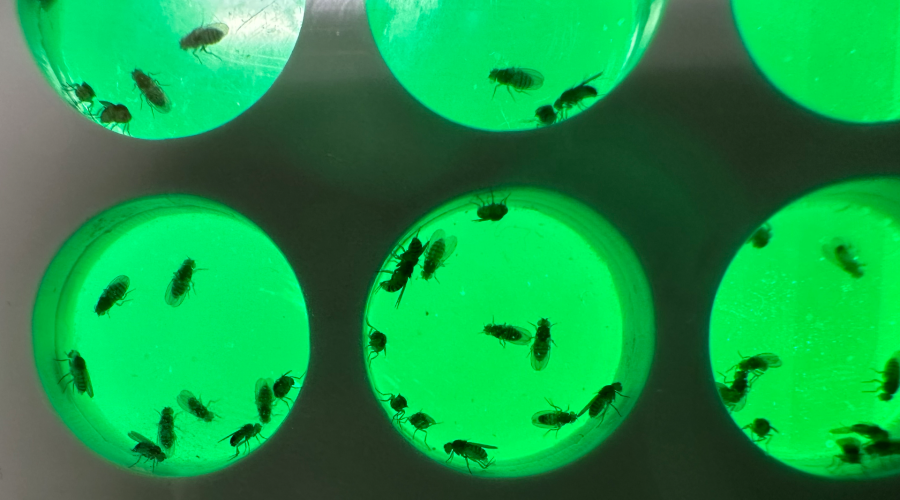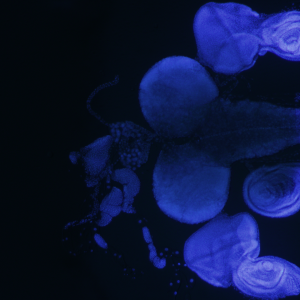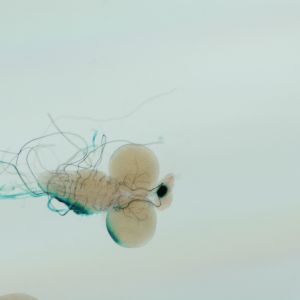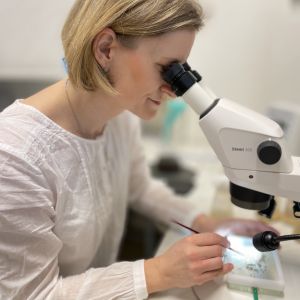Faculty of Science of the University of South Bohemia received the prestigious international grant EMBO

On 17 January 2023, the results of the ‘EMBO Installation Grants’ were announced, which provide multi-year funding to principal researchers to establish and develop their research teams and laboratories in the participating countries. One of the winners and grant recipients is Mgr. Michaela Fencková, Ph.D., from the Department of Molecular Biology and Genetics, Faculty of Science, University of South Bohemia in České Budějovice. She succeeded in a big competition by researching a basic form of learning called habituation.
The new grantees, 11 in total, will set up their laboratories in seven countries: Croatia, the Czech Republic, Estonia, Lithuania, Poland, Portugal and Turkey. Research projects will address topics as diverse as cancer biology, virus dynamics, gene editing technologies and the role of phytoplankton in the global carbon cycle.
‘The “EMBO Installation Grants” provide a tremendous opportunity for researchers to embark on a wide range of ambitious projects in the life sciences,’ says EMBO Director Fiona Watt. ‘The programme supports group leaders in setting up and developing their laboratories, provides mentoring, networking and training opportunities, and helps build vibrant, interdisciplinary national and international research communities,’ adds the EMBO Director.
As the only project from the Czech Republic, the research of Mgr. Michaela Fencková, Ph.D., from the Department of Molecular Biology and Genetics, Faculty of Science, University of South Bohemia in České Budějovice, succeeded. It deals with the basic form of learning, the so-called habituation. It is widespread from unicellular organisms to humans. It serves to filter out irrelevant information from the environment and allows one to focus on important stimuli such as food or danger. However, genetic factors can cause habituation to go awry, contributing to disorders such as intellectual disability and autism. Dr Michaela Fenck is trying to shed light on these influences by studying habituation in the Drosophila fruit fly.
‘How genetic defects can cause dysfunction in the neural processes that control habituation is still shrouded in mystery,’ says Dr Michaela Fencková. ‘Approximately three-quarters of the genes the defects in which lead to intellectual disability and autism also exist in Drosophila. Using a high-performance habituation test, we will investigate the mechanisms by which they influence the neural activity and learned behaviours that lead to habituation deficits in flies,’ adds Dr Fencková. The ultimate goal of her research is to decipher the genetic and environmental influences leading to the pathological conditions and thus support the search for treatments.
‘It is encouraging to receive the support of the EMBO Installation Grants for this research and an amazing feeling to be able to turn my research ideas into reality. The campus here is great and the University is very supportive and provides me with all the facilities necessary for my research. My team and I will benefit enormously from the training and personal development courses that EMBO offers, as well as the opportunity to gain further contacts and collaborations,’ said Dr Fencková.
This year's grants were supported by the Ministry of Science and Education of Croatia, the Ministry of Education, Youth and Sports of the Czech Republic, the Estonian Research Council, the Research Council of Lithuania, the Ministry of Science and Higher Education of Poland, the Champalimaud Foundation, the Instituto Gulbenkian de Ciência, the Science and Technology Foundation of Portugal and the Türkiye Science and Technology Research Council (TÜBITAK).
The new recipients of EMBO Installation Grants will set up laboratories in different European countries. One laboratory will be in Croatia, one in the Czech Republic, one in Estonia, two in Lithuania, two in Poland, two in Portugal and two in Turkey (Türkiye). Six of the 11 grantees are women (55%) and five are men (45%). All have spent at least two consecutive years outside the country in which they are setting up their laboratory in the four years prior to the application.
O společnosti EMBO
EMBO is an organization of more than 1 900 leading researchers that promotes excellence in the life sciences in Europe and beyond. The goals of the organization are to support talented researchers at all stages of their careers, stimulate the exchange of scientific information, and help build a research environment where scientists can achieve their best work.
EMBO helps young scientists to advance their research, promote their international visibility and ensure their mobility. Courses, workshops, conferences, and scientific journals disseminate the latest research and offer training in techniques to maintain high standards of excellence in research practice. EMBO helps to shape science and research policy by seeking input and feedback from our community and by following closely the trends in science in Europe.
For more information see www.embo.org.
Photographs:
- Flies on the habituation plate
- Larval brain fluorescence
- Larval brain
- Mgr. Michaela Fencková, Ph.D.






